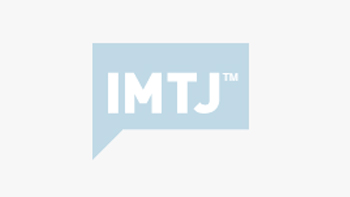Indian hospitals saw 18,000 Nigerians on medical visas in 2012, a trebling in numbers in the last three years. With Nigerian politicians more determined than ever to stop this loss of foreign exchange, Indian hospital groups looking long term see the future as building hospitals in Nigeria.
Indian hospitals saw 18,000 Nigerians on medical visas in 2012, a trebling in numbers in the last three years. With Nigerian politicians more determined than ever to stop this loss of foreign exchange, Indian hospital groups looking long term see the future as building hospitals in Nigeria.
47% of Nigerians visiting India in the year 2012 did so to get medical attention, according to figures from the Indian High Commission. These 18,000 medical tourists spent $260 million in scarce foreign exchange in the process. (Around $15,000 per medical tourist).
This trend results from the inequality in access to healthcare and dearth of medical facilities, which have remained major, upsets to Nigeria’s healthcare.
The trend of referring patients from health institutions in Nigeria to similar institutions in India is a common practice. This development has made many Nigerians lose confidence in the ability of the nation’s healthcare institutions to deliver quality healthcare.
Mike Chukwu of Assetswise Capital has identified low standards of patient care, an absence of world-class hospitals and diagnostic centres and the stunted growth of the healthcare system in the country, as responsible for this massive medical tourism to India; “A poor pipeline for high skills, poor health value chain, as well as low health insurance cover, have led to weak effective demand for healthcare services, resulting in poor economics of scale for hospital services in the country. Medical equipment in some hospitals is bedeviled with irregular maintenance and upgrades, and diagnostic services not readily within reach, raising questions of quality control, availability, timeliness and reliability. Ambulatory services are often not available or affordable. There is an absence of internationally recognised certifications, a weak regulatory and supervisory framework, and weak framework for legal indemnities. There is poor management, plus poor staffing in terms of number and specialties of doctors and other healthcare providers. These have resulted in the low standard of care in the country.”
Chukwu advised that the approach to reversing the medical tourism problem in Nigeria must be to develop private sector healthcare- “There is need to improve access to capital, develop and enforce quality standards, mobilise public and donor money to the private sector, modify local policies and regulations to foster the role of the private sector and foster health insurance.”
Health minister Muhammad Ali Pate says that it is essential to unlock the market potential for health services in the country by creating an enabling environment for the private sector to grow.
The Federal Ministry of Health will look at regulations to discourage growth of medical tourism and review fiscal policies (economic incentives, tax, foreign exchange, import tariffs) that affect healthcare, to create more favourable economic incentives for doing business in the healthcare sector.
Another top Indian hospital has sealed a deal to set up collaborative medical services in Port Harcourt, Rivers State, at the First Rivers Hospital. Medical cases can be properly examined and successfully managed in Nigeria without the extra burden of overseas travels while only complicated surgeries will be directed to Ruby Hall Clinics in Pune for specialist care. The investment means an upgrade for facilities and healthcare services at First Rivers Hospital, as well as providing online/real time and direct access to specialist consultants’ expertise at Ruby Hall Clinic.








 ©2024 All rights reserved LaingBuisson
©2024 All rights reserved LaingBuisson 


